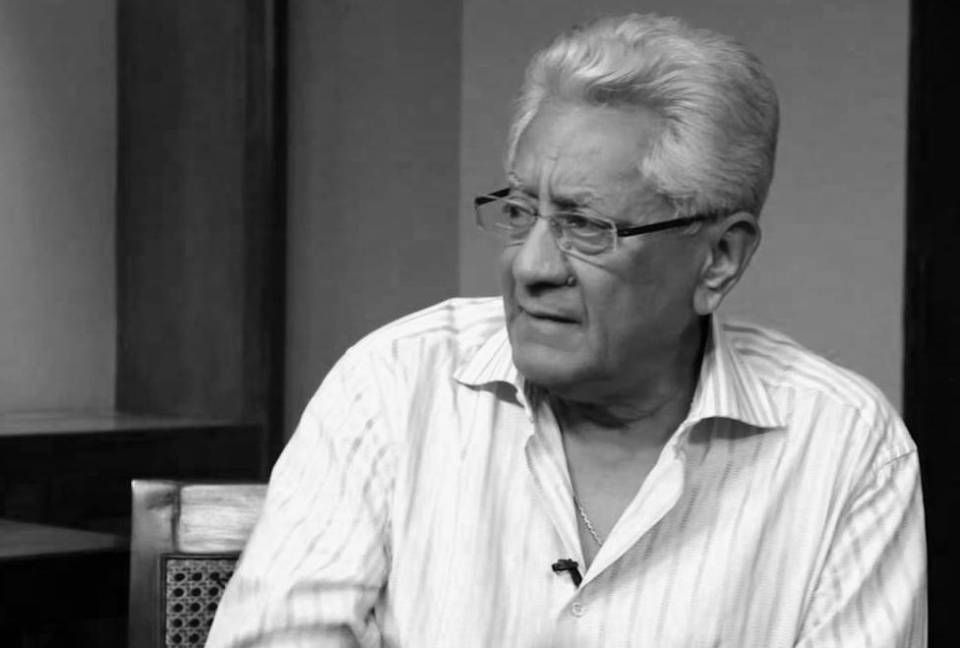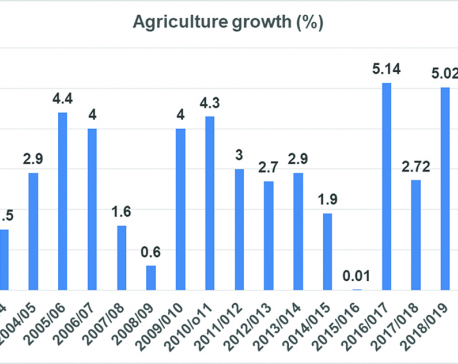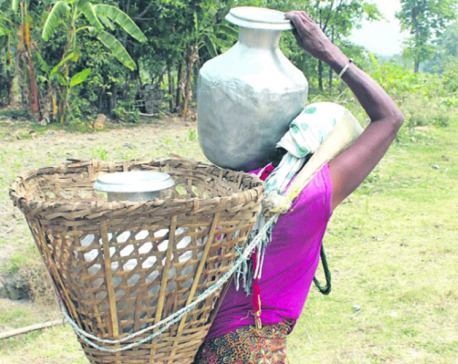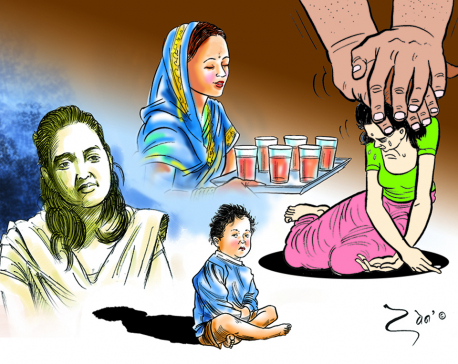
OR

More from Author
Before uprising in April 2006, Prabhakar Rana had worked extensively to get Henry Kissinger to visit Nepal to persuade King Gyanendra to reconcile with political parties
I first met Prabhakar Rana in 2006 when I was a student pursuing my bachelor’s degree in Political Science in America. My first impression of Rana was that he transcended age groups and he was at complete ease in talking to someone substantially younger. For a young person passionate about politics, it was an opportunity to engage with someone as senior as Prabhakar Rana who had insight into Nepali statecraft and had in the past exerted influence on critical decisions shaping the country.
If there is a legacy that Prabhakar Rana wanted to leave behind it was Nepal as a democracy with space for institution of monarchy if people so desired.
My family reference helped me initially to develop contact with Rana but over the years, we would meet extensively and this provided us the opportunity to exchange views on contemporary political issues. No doubt Rana was a royalist and that too fiercely loyal to the institution of monarchy. But more importantly he was a doyen of palace diplomacy, a democrat who had the knack for the feel of local and international pulses, and was a statesman deeply committed to the future of Nepal.
Silent mediator
When I started to develop a relationship with Rana, it was post-People’s Movement II and at this stage the palace’s sway in Nepali politics was in its waning phase. In fact, months before the popular uprising in April 2006, Rana had worked extensively through his contacts to get Henry Kissinger to visit Nepal to persuade King Gyanendra to reconcile with political parties. Unfortunately, Kissinger suffered a fracture on his arm and therefore could not make it to Nepal.
The 2005 coup of King Gyanendra was a move that could not be defended either domestically or internationally for the obvious reason that it breached the fundamental principles of constitutional democracy. Rana in private was anxious and nervous about the consequences of the coup, for he feared its implications on monarchy’s future. Despite his private disagreements with the coup, post-April 2006 uprising, Rana’s immediate task in hand was to engage the international community and key domestic political leaders on retaining the institution of monarchy in some form or the other. To this effect he marshaled all his contacts—both international and domestic—as what mattered most at the time was trust and credibility in what would be committed and who represented the voice of the palace. This is where Rana mattered the most. As history would demonstrate, the curtains had already fallen over the kingdom of Nepal as a new dawn awaited a republic.
Rana had extensive domestic contacts, and these contacts permeated through different political parties including the Maoists. At the international stage through his business interests and his long and exhaustive role as the palace’s chief foreign interlocutor to the international community he had developed extensive contacts with wide range of personalities including Brajesh Mishra, Dr Karan Singh, MK Rasgotra, Ratan Tata, Shyam Saran, Senator Dianne Feinstein, Hillary Clinton, William Hague and numerous Chinese ambassadors, to name a few. It was in this context of his international contacts that Rana arranged for me to intern at the Capitol Hill in Washington DC as an intern for Senator Dianne Feinstein. I spent the autumn of 2008 in Washington DC interning for Senator Feinstein in a very fulfilling experience. My experience in Washington was very unique also because 2008 marked a historic watershed in American politics that witnessed Barack Obama becoming the president of America. To be in Washington DC and that too, to be on the Hill and in the same office building as Obama, was undoubtedly an experience never to be forgotten. And I owe this to Rana.
After my return from America upon completing my master’s degree, my interactions with Rana had become a monthly routine. Rana respected and understood that my family and particularly my grandfather now stood firmly in his belief on a republic. The commitment toward republic was the acceptance of popular will, in plain and simple terms, an acceptance of the outcome of the electoral process of the Nepali people that triggered the country’s transformation from a kingdom to a republic. The king himself left the palace accepting the verdict of the people. The transformation from a kingdom to a republic is a showcase of how Nepal has peacefully concluded the peace process. Prabhakar Rana had worked tirelessly behind the scenes to ensure a peaceful and respectful transition. King Gyanendra left the palace exhibiting maturity and grace, a rarity in today’s political folklore.
Devotion for democracy
In the final years of Prabhar Rana’s life, his political and diplomatic focus had shifted toward the creation of a democratic front. His central thesis was simple: Democratic parties in Nepal and Western countries were both being beaten at their own game on the floor of the parliament—the temple of democracy—by leftist political parties backed by international forces which had no faith in parliamentary democracy. The fact that leftist forces had taken control over a democratic platform, such as the parliament, through popular support to him demonstrated total failure on the part of democratic parties. At the international stage, his ideological tilt was toward democratic countries and this tilt is also reflective of his overall worldview that liberal democracy and market economics are the critical footsteps for the development of any nation.
On the international front, Prabhakar Rana realized how important India was to Nepal and that Nepal’s geography dictated that we had to live in good terms with India. This, he claimed, was our reality. What made Rana distinct in his diplomatic approach was he accepted the outcome of the 12-point agreement signed in New Delhi in November 2005 between the political parties and the Maoists. But behind the scenes in his elegant basement office at the Soaltee Hotel, he hosted politicians, diplomats, lobbyists and back room strategists of Nepal’s power corridors to squeeze in some space for the institution of monarchy albeit within the constitutional framework of 2015.
With regard to China, he often spoke on the security concerns that China had in Tibet. He had one story to drive home the point on China’s concern: When Jiang Zemin was the Mayor of Shanghai and his close friend Senator Feinstein was the Mayor of San Francisco, Zemin had told Feinstein consistently on the importance China attaches to Tibet and that China could go to any length to protect her interest in Tibet.
Monarchies across the world have fallen prey to political misadventures. Majority of the surviving monarchies today are in Europe and in other democracies around the world. Modern nation states have withstood the fractures of monarchial transitions to a republic and nation states have continued to exist without kings and queens. At the end of the day, it is the people who make a nation. The nation is represented by the state made by the people.
If there is a legacy that Prabhakar Rana wanted to leave behind it was Nepal as a democracy with space for institution of monarchy if people so desired.
The author is a Country Director at Meinhardt Group, Nepal
You May Like This

Erratic pattern
Agriculture in Nepal is suffering from years of under-investment, limited research, scant inputs and lack of technology and services for... Read More...

Primitive society
Nepal’s primitiveness is starker in its villages, where public amenities such as drinking water supply, public sanitation, paved streets and... Read More...

Stand against violence
What are the driving factors of violence against women and girls in Nepal? Why are we struggling to stop it?... Read More...





Just In
- MoHP cautions docs working in govt hospitals not to work in private ones
- Over 400,000 tourists visited Mustang by road last year
- 19 hydropower projects to be showcased at investment summit
- Global oil and gold prices surge as Israel retaliates against Iran
- Sajha Yatayat cancels CEO appointment process for lack of candidates
- Govt padlocks Nepal Scouts’ property illegally occupied by NC lawmaker Deepak Khadka
- FWEAN meets with President Paudel to solicit support for women entrepreneurship
- Koshi provincial assembly passes resolution motion calling for special session by majority votes







_20220508065243.jpg)






Leave A Comment